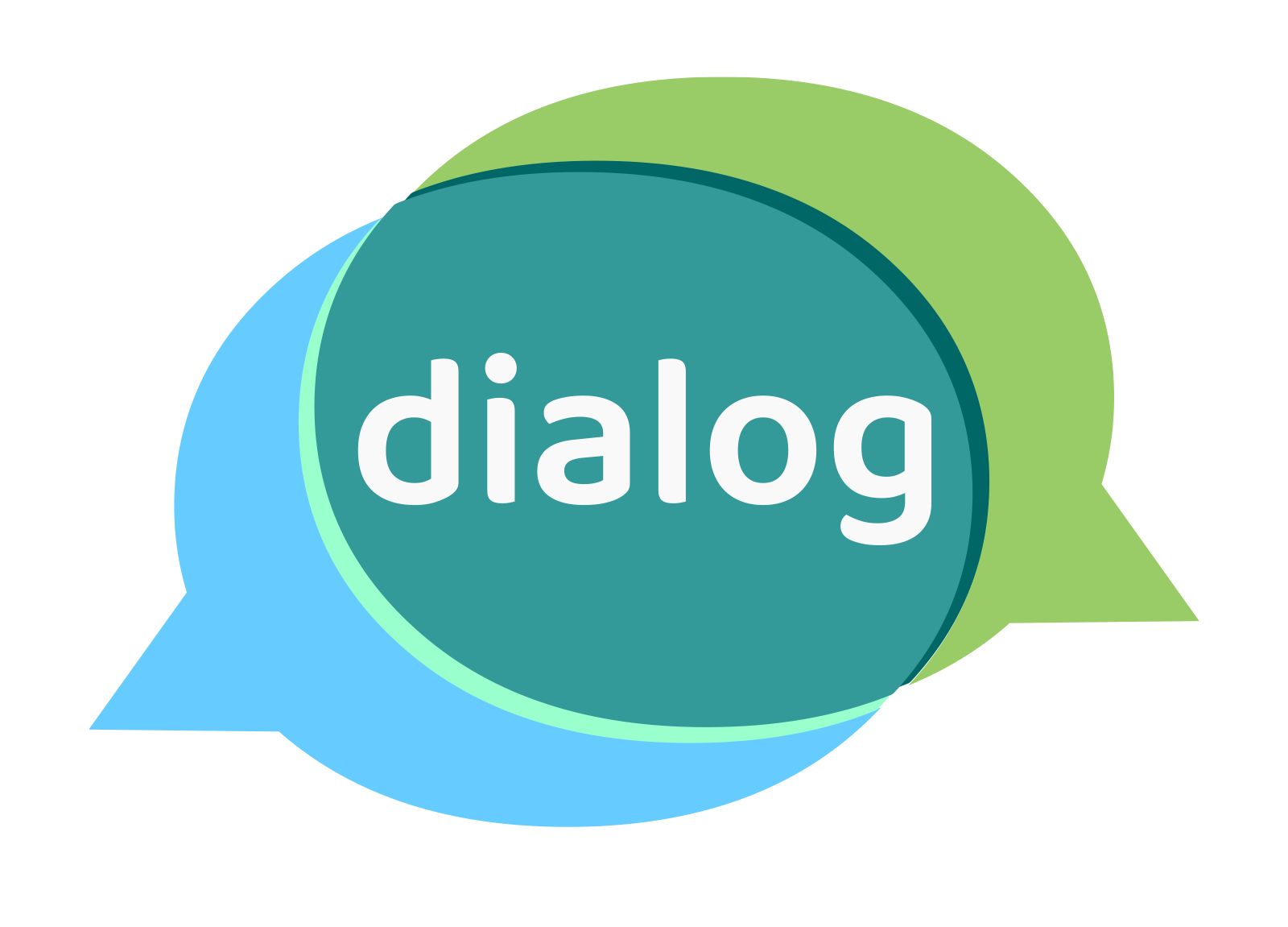ChatGPT Local, SMB SaaS, AI Browser Wars, 50-50, AI Trust
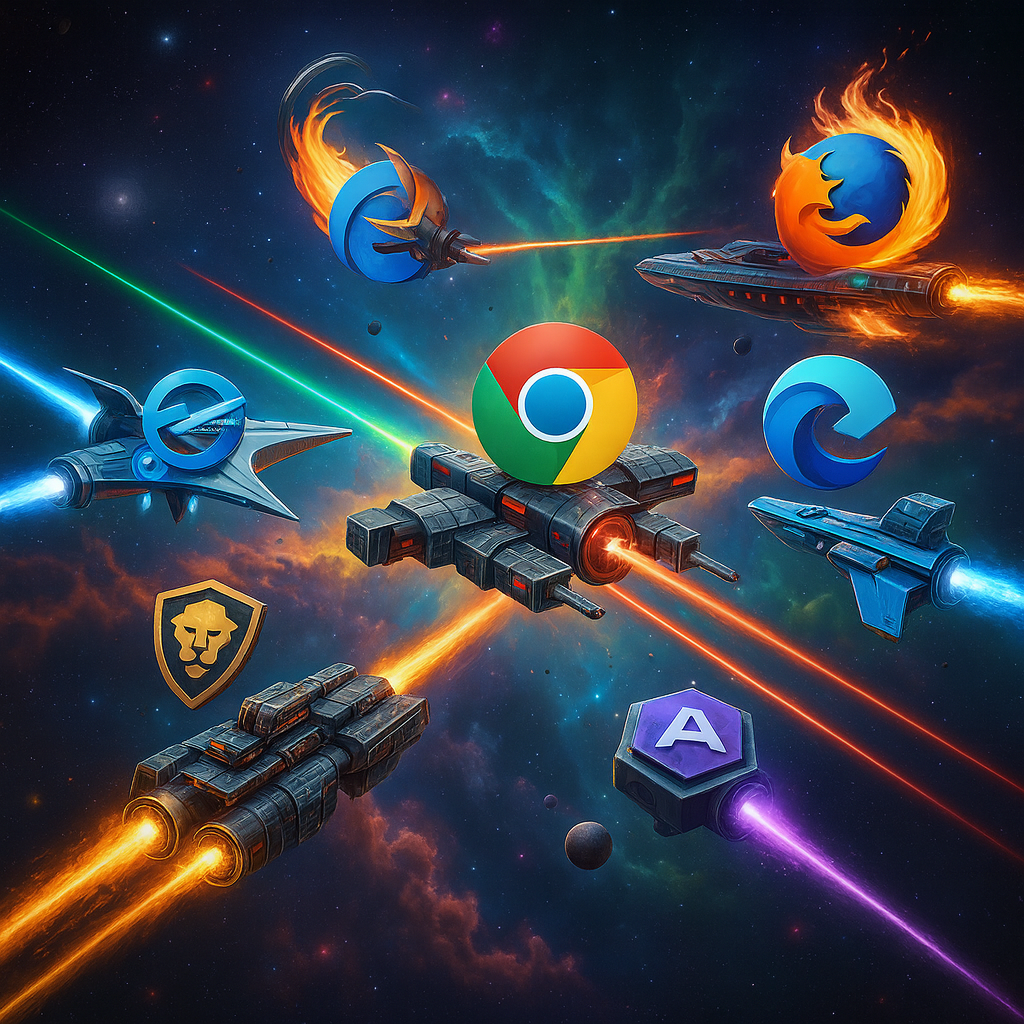
ChatGPT's New Local Results
One of the persistent complaints about local search results in ChatGPT is that they're not enough like Google's, meaning they don't have the rich data people have been conditioned to expect from Google Business Profiles. With a new local SERP, however, ChatGPT has taken a leap forward. As seen below, the new results are more structured, more visual and generally more useful than the old results. There's an image carousel, review star ratings, physical address information and often some sort of editorial content (e.g., "how to choose," "why it stands out"). Hours are there but only in a binary "open/closed" format. Website links are typically present but not always. Phone numbers and maps seem to be mostly available but not always. Map pins feature "directions," "website" and "call" buttons. Reviews are not clickable and so can't be read (although most people don't actually read reviews). According to what ChatGPT indicated (grain of salt here), reviews are drawn from multiple sources, including first-party reviews. In some cases, however, they may be taken from a single review source such as Yelp. Images also come from multiple sources, including directories and the business website. How much of this information is from websites, directories and/or Google is unclear. However, there's evidence ChatGPT is scraping Google. The new local format appears to be evolving and some elements are inconsistently available, which is a problem. But local results are definitely getting better.
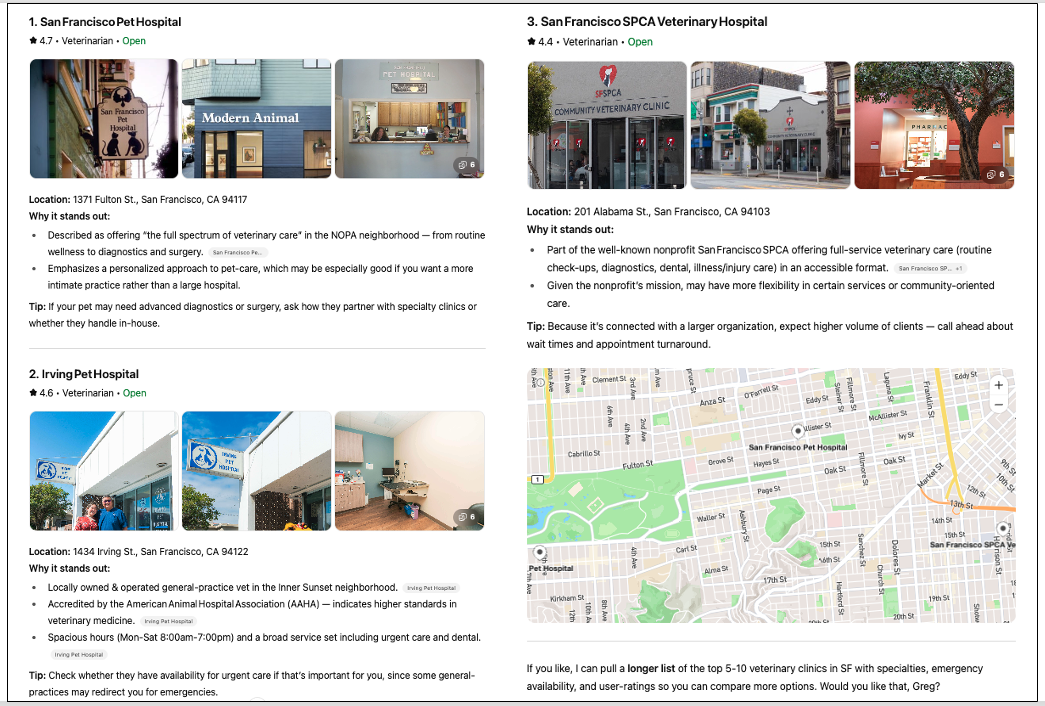

State of SMB Tech Adoption
Intuit has released its small business (SMB) index annual report 2025. It's a wide-ranging document that explores employment, revenue and technology trends among SMBs in the US, UK and Canada. It uses multiple data sources, including internal data, government records and a 2024 survey of nearly 3,000 respondents. One of the more interesting findings in the lengthy report looks at differences between the "most popular" SMB software and what they find "most useful." (This is not unlike our earlier comparison of the most widely adopted vs. most effective SMB marketing channels.) The most widely adopted "digital tools" on the list are social media and websites, followed by accounting software, payment tools, payroll and email. AI and machine learning show up way down the list. By contrast, accounting and financial software is seen as the most useful, followed by websites and social media. In that "useful" category, AI is again at the bottom. Our data, and other SMB studies affirm that social media is their top marketing channel. By contrast, our data show SMB adoption of AI tools is significantly higher. (It's not clear how AI was defined and some of the tools on the list have "AI in the background.") The responses may be partly skewed by the fact that some of those surveyed were drawn from among Intuit's QuickBooks customers.
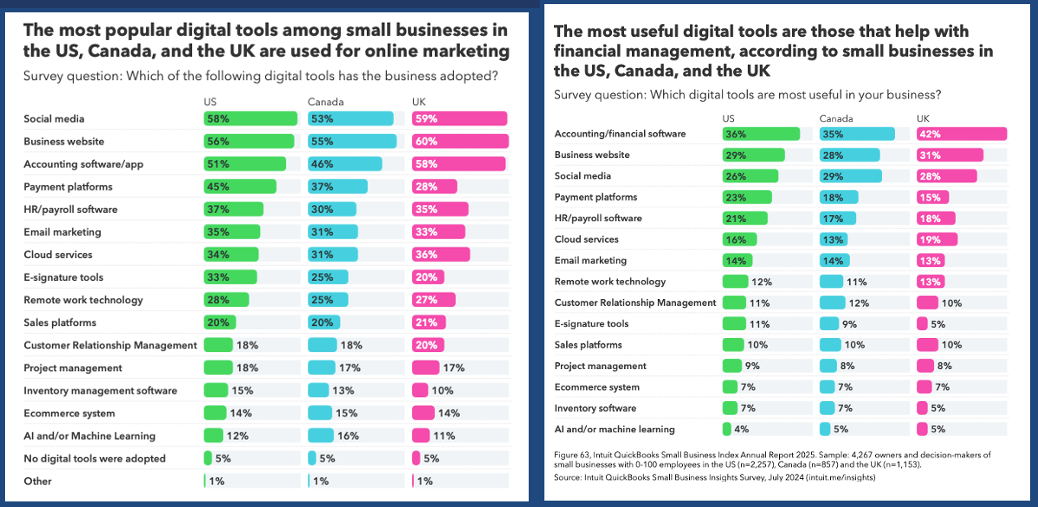
Source: Intuit

Browser Wars: AI Edition
It seems like only a few months ago we were talking speculatively about "AI browsers." Now they're popping up all over the place, like mushrooms on the forest floor after a rainstorm. The list now includes, but is not limited to, Chrome with Gemini, ChatGPT Atlas, Perplexity Comet, Dia, Opera One, Microsoft Edge with Copilot Mode, Sigma OS and Wave. Firefox and Safari probably won't be far behind. Atlas launched this week to much fanfare and hyperbolic headlines. Globally, Google Chrome is the dominant browser with nearly an 80% share. In North America it's somewhat more competitive because of the iPhone and Safari. Chrome has 54%, Safari has 29% and Edge has 7% (90% of the market). These new AI browsers offer similar capabilities and user experiences. And while the media will play up the "coming for Google Chrome" angle, the ability to disrupt the market and capture share is reduced by the fact that the majority of users will likely stick with what they're already comfortable with. (Security risks may also slow adoption.) Collectively, however, the advent of these new or updated browsers could have a profound longer-term affect on how consumers discover information, shop and buy. They will also impact web design. For now, however, it's unlikely that Atlas or any of the others will shake Chrome and Safari's hold on the North American market.
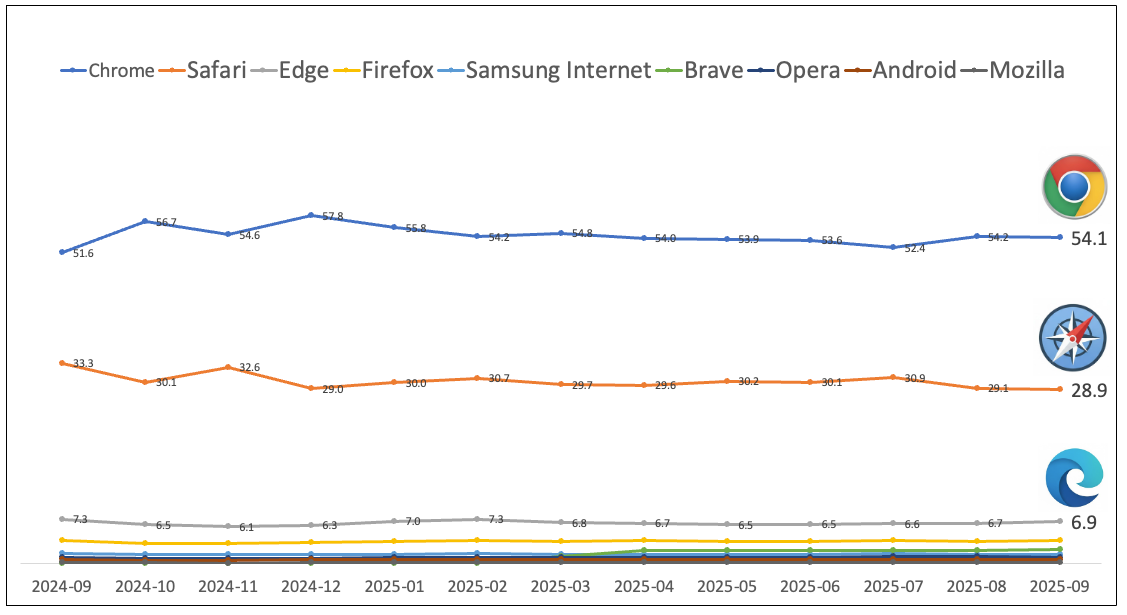

Is 'AI Slop' Growing or Slowing?
Putting aside AI video (e.g., Veo, Sora), the steady growth of AI-generated content online may have plateaued. That's based on data from AI SEO firm Graphite. (Some outlets are going with this angle: "Over 50 Percent of the Internet Is Now AI Slop, New Data Finds.") Indeed, the number of AI-generated articles has surpassed human-written content. However, the growth of AI-generated content has likely slowed or stabilized. One reason for this may be that AI-generated articles don't perform as well as human-created content. Graphite says that the majority of top-ranking content on Google is human (or substantially human) generated. However, there are competing findings that Google doesn't penalize AI content in any way. There's also evidence of an emerging backlash against AI. Consumers are highly ambivalent about it and many users want the ability to totally opt-out of AI content in their social feeds. Pinterest recently added more control over the amount of AI content in the feed, following a user outcry And multiple surveys reflect growing AI skepticism. While there are no totally AI-free platforms, this is increasingly a topic of discussion online.
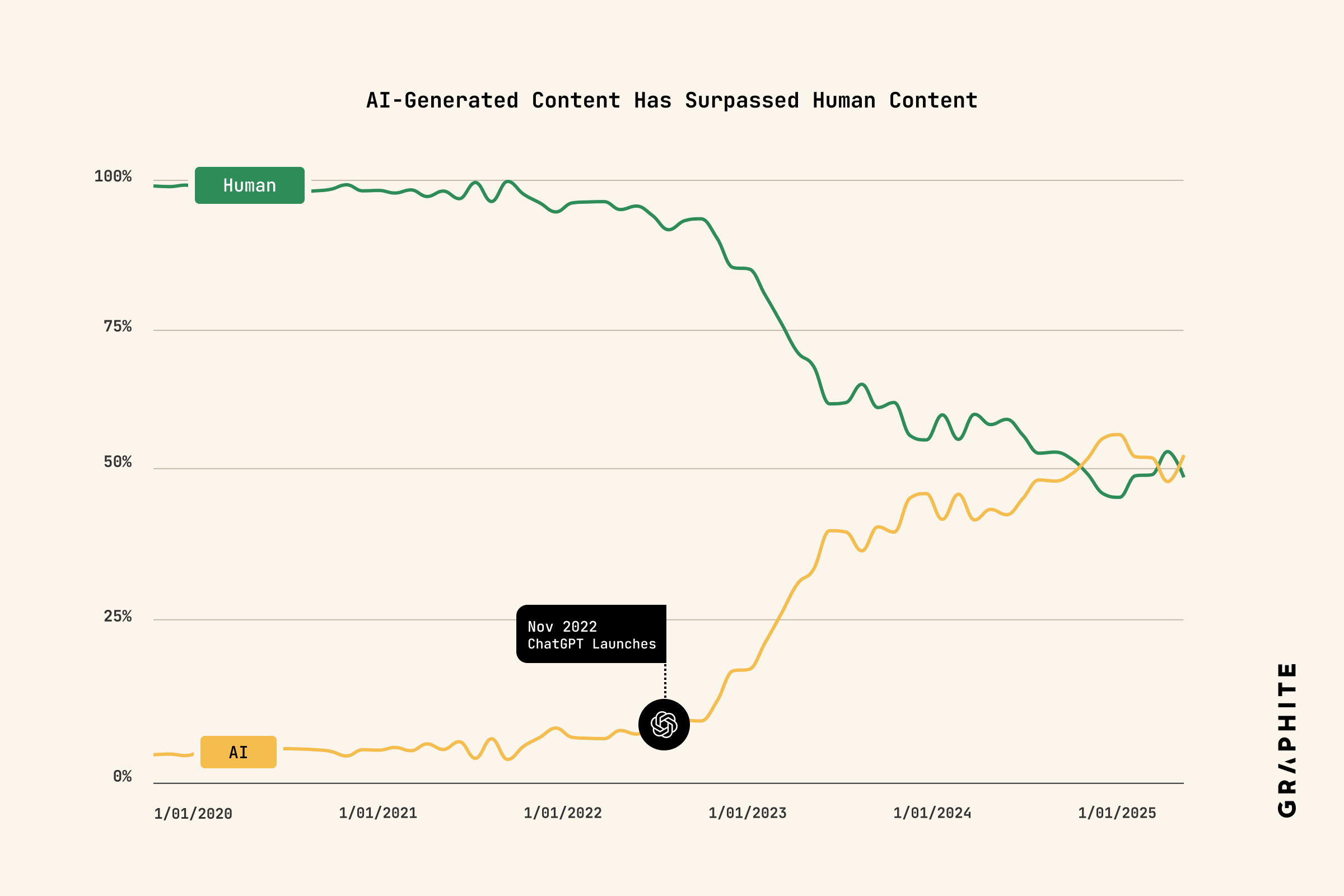

Trust but Verify
The adoption and use of AI continues to grow but trust in AI is not entirely commensurate with adoption. A recent survey of more than 2,000 adults from iHeartMedia found that 97% of respondents are familiar with AI and 70% say they use it in some capacity. However more than 80% report being worried about the societal impact of AI and 75% say they do not want AI in their media or entertainment. Two-thirds (66%) also fear potential job loss due to AI. So what we have is a situation of increasing adoption and usage but a high degree of ambivalence at the same time. A recent consumer survey Dialog conducted on the question of AI and trust shows a decline in the number people who entirely trust AI. In our past surveys roughly 60% to 70%+ have said they trusted AI answers without qualification. In the new data, the "sometimes" category is considerably larger than "yes." A similar "trust but verify" attitude toward AI content is also reflected in a large study of teens and technology in Europe. They have widely embraced AI but use "a range of strategies to verify information, with the most common being cross-referencing with other [trusted] sources."
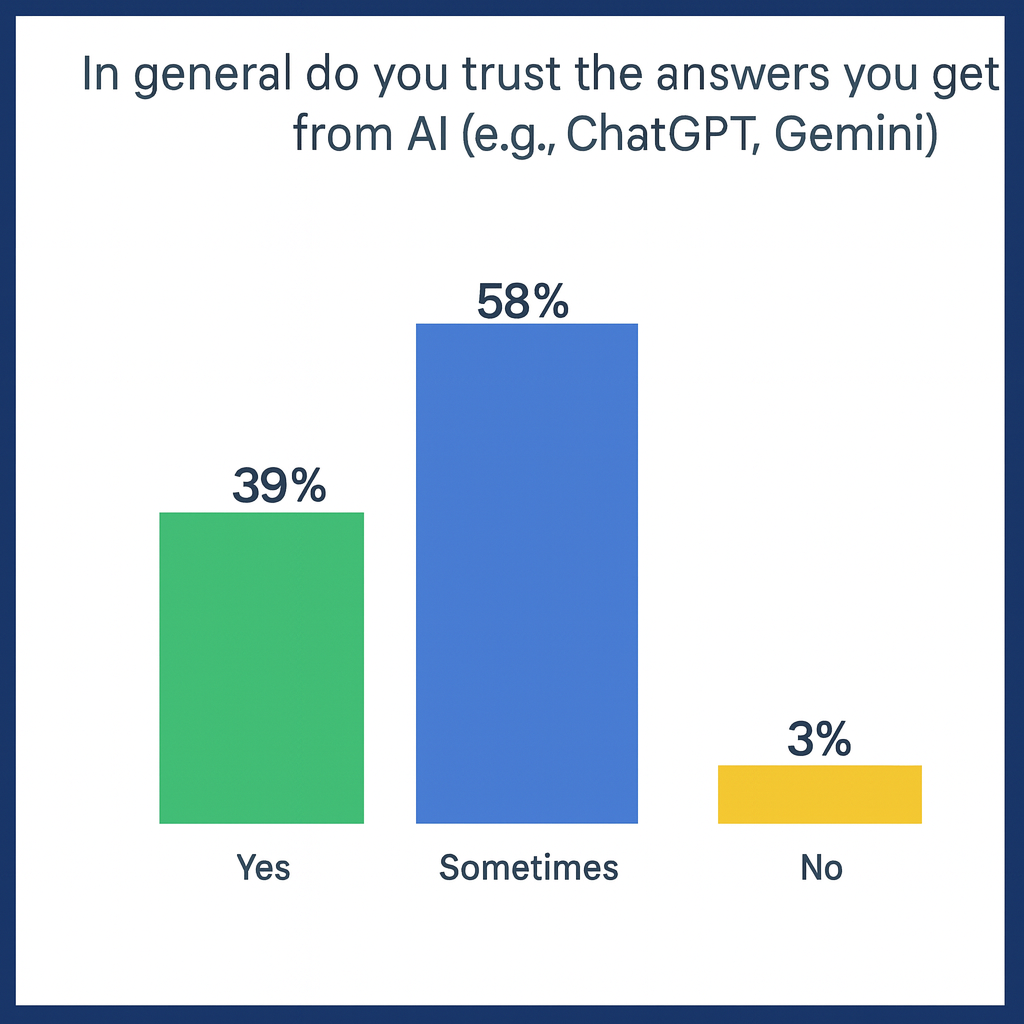

Everything Else
- Walmart joins OpenAI's e-commerce initiative.
- Is ChatGPT growth stalling (and here)?
- US and Italy are the countries least excited about AI.
- MSFT: Here's how you optimize for AI search.
- Should digital marketers simply ignore ChatGPT?
- BYOAI is growing and companies must learn how to adapt.
- CA passes first law to regulate AI companion chatbots.
- Zocdoc: from MD booking to patient platform with AI.
- Integration with other Google tools why Gemini is growing.
- Why you can't simply replace people with AI.
- Anthropic spending crazy billions on AWS.
- Veo, Sora and the risk of AI video disinformation.
- Broad coalition of public figures urges superintelligence ban.
